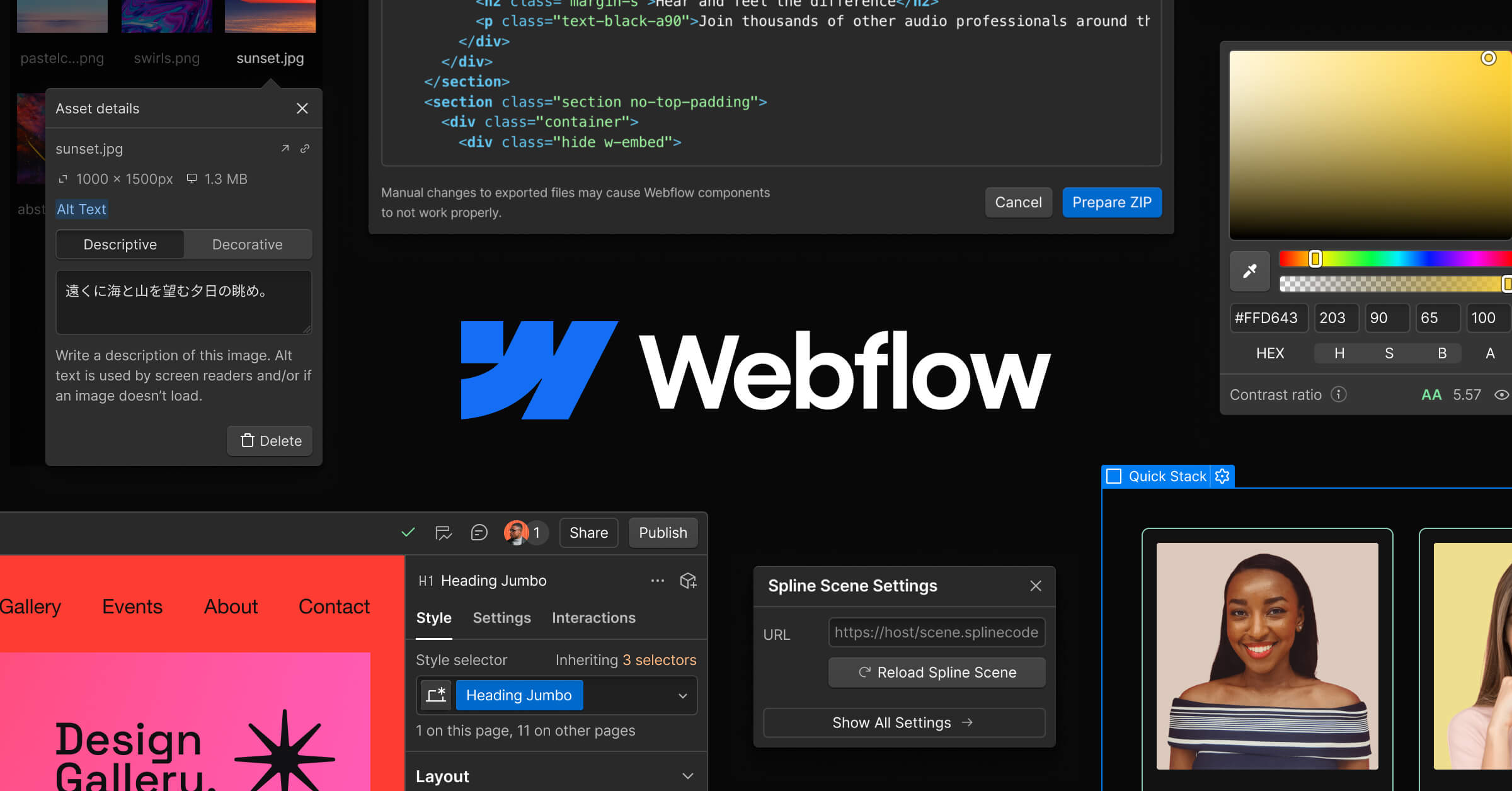1. Ease of Use: Who Gets the Seatbelt Off Faster?
WordPress is powerful, but it comes with a learning curve. Themes, plugins, and custom code are often required to achieve the design or functionality you want, and updates can be tricky if you’re not careful. That’s why even experienced teams sometimes end up spending hours fixing plugin conflicts instead of focusing on content or marketing.
Webflow, on the other hand, lets you design visually without sacrificing code quality. Everything you create is clean, exportable, and doesn’t require constant plugin babysitting. For teams that want control without depending on developers for every minor tweak, Webflow wins in ease-of-use and speed.
If you’re curious about moving from WordPress to Webflow, our guide on why businesses are switching from WordPress to Webflow covers the exact benefits you’ll see post-migration.
2. SEO & Content Management: Keeping Google Happy
Both platforms can rank well if used correctly, but the approaches are different. WordPress is SEO-friendly out of the box, but good SEO often depends on plugins like Yoast, Rank Math, or ACF. That can mean extra setup, maintenance, and potential plugin conflicts that affect your site’s speed or stability.
Webflow takes a more integrated approach: semantic HTML, automatic sitemap generation, alt-text support, meta tag editing, and clean URLs — all built in. That means fewer moving parts and a more reliable foundation for long-term SEO.
For businesses migrating from WordPress, our Webflow website migration SEO checklist walks through exactly how to preserve and improve rankings during the move.
3. Design Flexibility: Templates vs Custom
WordPress themes are powerful but often limiting if you want a unique look. Sure, you can customize with page builders, but that can get messy fast and slow down your site.
Webflow gives you full design freedom, whether you start with a template or build custom. Need a unique landing page, dynamic blog layout, or complex interactions? Webflow handles it without plugin gymnastics. If you’re curious about the difference between custom builds and templates, check out our post on Webflow Custom vs Template.
4. Team Size & Workflow: Who’s Building and Approving?
Another big consideration is your team.
- Larger teams with multiple stakeholders benefit from a custom Webflow build, where sitemaps, wireframes, and Figma designs can be signed off at each stage. It ensures clarity, prevents conflicts, and keeps QA manageable.
- Smaller, more agile teams might thrive on a Webflow template or a simple WordPress setup, where speed matters more than strict governance.
The wrong workflow can create frustration no matter how good the platform is — so choosing based on team size and process is just as important as the platform itself.
5. Maintenance & Long-Term Scalability
WordPress sites can require ongoing maintenance: updates, security patches, and plugin compatibility checks. Neglecting any of these can break your site.
Webflow reduces that maintenance burden. Hosting, SSL, site backups, and performance optimization are built in. Your site scales without worrying about plugin conflicts or server headaches — freeing your team to focus on marketing, content, and growth.
6. Cost Considerations
WordPress can feel cheaper upfront — free themes, free plugins, and shared hosting. But once you factor in developer time, plugin subscriptions, and ongoing maintenance, costs add up.
Webflow’s pricing is predictable, with hosting included and no plugin ecosystem to manage. For teams that value speed, flexibility, and peace of mind, the investment often pays for itself in reduced headaches and faster launches.
Final Verdict: WordPress or Webflow?
There’s no one-size-fits-all answer.
- Choose WordPress if you need open-source flexibility, rely heavily on specific plugins, or already have a team experienced with the platform.
- Choose Webflow if you want cleaner code, integrated SEO tools, design freedom, predictable hosting, and a platform that scales with your business.
Many teams start on WordPress and migrate once they hit the limits of their setup. Others go straight to Webflow for a modern, low-maintenance foundation. Either way, knowing the differences and what your team really needs is the key to avoiding costly headaches.
If you want help launching a new Webflow site or migrating from WordPress, we’re here to guide you every step of the way with custom Webflow builds .



